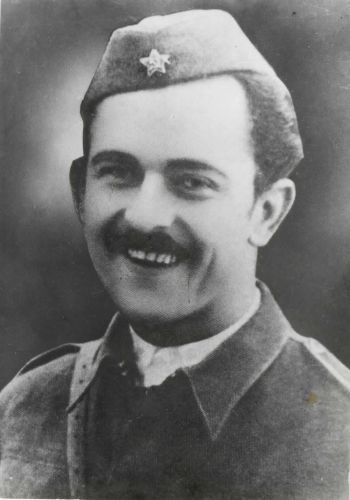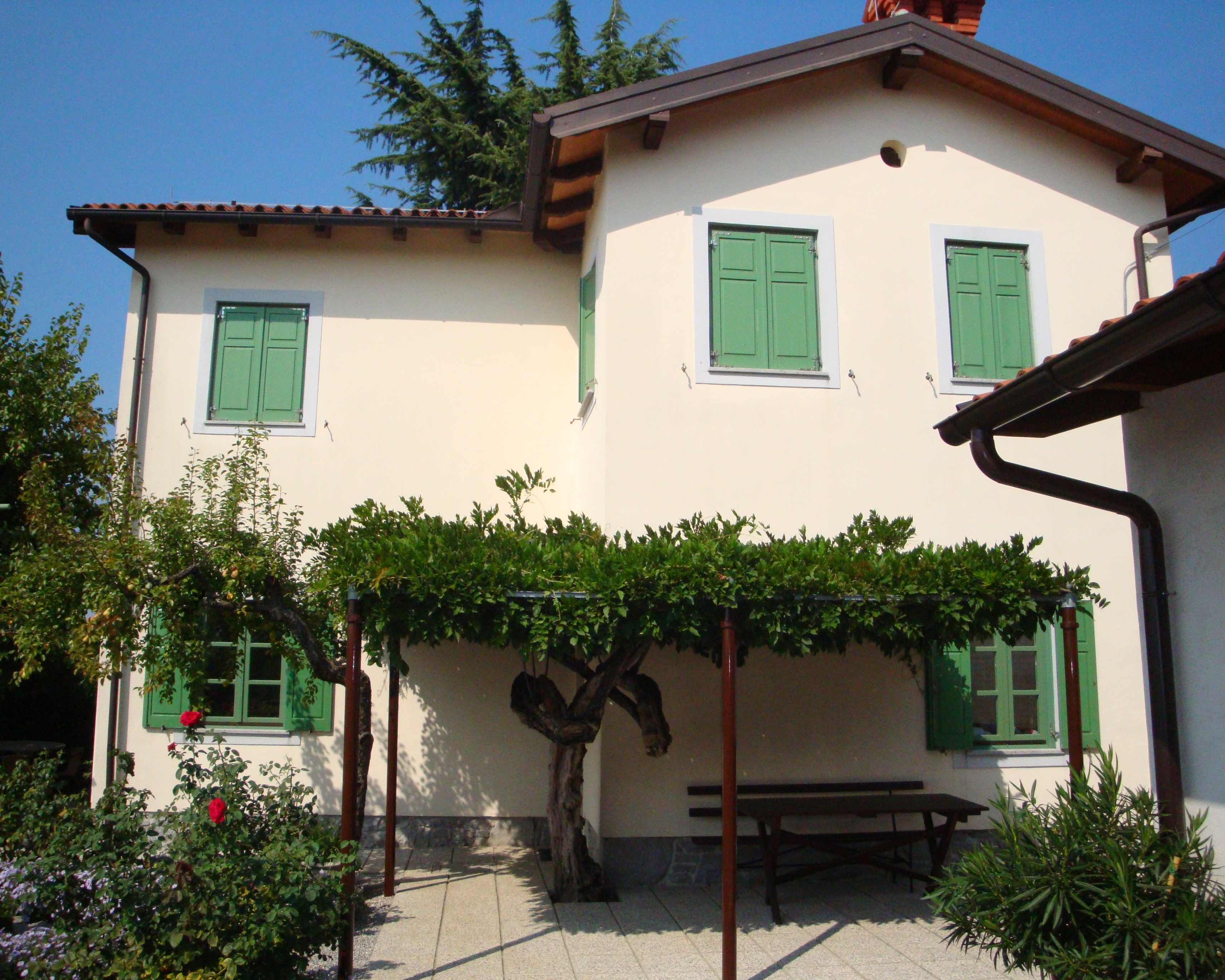|
Breda Šček
Breda Friderika Šček Orel (20 August 1893 – 11 March 1968) was an Italian-Slovene composer, choir conductor, and singer. She published her music under the name Breda Šček. Life Šček was one of eight children born in Trieste to Slovene parents Vincencij Kanta and Josip Šček, a train driver. She studied music at the Tartini Conservatory in Trieste and at the Music Liceo Martini in Bologna, Italy. (A) Her teachers included Tina Bendazzi-Garulli, Valdo Garulli, and Adolf Skolek. She married Silvester Orel sometime before 1912. Šček worked as a singer, teacher, and choral conductor. She notated and arranged previously unpublished folk music. She also composed music for texts by Giovanni Pascoli and more than 30 Slovenian writers, including Franceta Bevka, Karel Destovnik (Kajuh), Simon Gregorčič, Srečko Kosovel, Fran Levstik, France Prešeren, Tone Seliškar, and Oton Župančič Oton Župančič (January 23, 1878 – June 11, 1949, pseudonym ''Gojko'') was a Sloven ... [...More Info...] [...Related Items...] OR: [Wikipedia] [Google] [Baidu] |
Trieste
Trieste ( , ; sl, Trst ; german: Triest ) is a city and seaport in northeastern Italy. It is the capital city, and largest city, of the autonomous region of Friuli Venezia Giulia, one of two autonomous regions which are not subdivided into provinces. Trieste is located at the head of the Gulf of Trieste, on a narrow strip of Italian territory lying between the Adriatic Sea and Slovenia; Slovenia lies approximately east and southeast of the city, while Croatia is about to the south of the city. The city has a long coastline and is surrounded by grassland, forest, and karstic areas. The city has a subtropical climate, unusual in relation to its relatively high latitude, due to marine breezes. In 2022, it had a population of about 204,302. Capital of the autonomous region of Friuli Venezia Giulia and previously capital of the Province of Trieste, until its abolition on 1 October 2017. Trieste belonged to the Habsburg monarchy from 1382 until 1918. In the 19th century the mon ... [...More Info...] [...Related Items...] OR: [Wikipedia] [Google] [Baidu] |
Giovanni Pascoli
Giovanni Placido Agostino Pascoli (; 31 December 1855 – 6 April 1912) was an Italian poet, classical scholar and an emblematic figure of Italian literature in the late nineteenth century. Alongside Gabriele D'Annunzio, he was one of the greatest Italian decadent poets. Biography Giovanni Pascoli was born at San Mauro di Romagna (renamed "San Mauro Pascoli" in his honor in 1932), into a well-to-do family. He was the fourth of ten children of Ruggero Pascoli and Caterina Vincenzi Alloccatelli. His father was administrator of an estate of farm land of the Princes Torlonia on which the Pascoli family lived. On the evening of 10 August 1867 as Ruggero Pascoli was returning home from the market at Cesena in a carriage drawn by a black and white mare (''cavalla storna''), he was shot and killed by an assassin hiding in a ditch by the road. The mare continued slowly on her way and brought home the body of her slain master. The murderer was never apprehended. Giovanni Pascoli ha ... [...More Info...] [...Related Items...] OR: [Wikipedia] [Google] [Baidu] |
Karel Destovnik
Karel Destovnik, pen name and nom de guerre Kajuh (Slovene convention: ''Karel Destovnik – Kajuh'', 13 December 1922 – 22 February 1944) was a Slovenian poet, translator, resistance fighter, and Yugoslav people's hero. Life and work Kajuh was born in the town of Šoštanj in Slovenian Styria as the illegitimate child of Jože Destovnik and Marija Vasle. His parents later married on August 14, 1923. The sobriquet Kajuh comes from the oeconym of his grandfather's birthplace in Skorno near Šmartno ob Paki. After finishing primary school in 1933, he enrolled in the Celje First Grammar School. In 1934 he became a member of the Young Communist League of Yugoslavia (SKOJ). He was expelled from school due to his communist ideas. He then continued his schooling in Maribor but did not finish it due to World War II. Kajuh started writing poems before World War II. He began publishing his poems in the literary magazine for youth ''Slovenska mladina'' (Slovene Youth), edited by his ... [...More Info...] [...Related Items...] OR: [Wikipedia] [Google] [Baidu] |
Simon Gregorčič
Simon Gregorčič (15 October 1844 – 24 November 1906) was a Slovene poet and Roman Catholic priest. He is considered the first lyric poet of the Slovene realist poetry and the most melodical Slovene poet. Biography Gregorčič (October 15, 1844 – November 24, 1906) was born in the small mountain village of Vrsno above the Soča river in the County of Gorizia and Gradisca as a second son of a small farmer Jernej Gregorčič and his wife Katarina (maiden name Gaberšček). He had seven siblings. As a young boy he was a shepherd. In 1851, he attended primary school in Libušnje, but was sent to school in Gorizia in 1852. After finishing high school he entered the seminary in Gorizia. He was ordained on October 27, 1867 and became a vicar in Kobarid in September 1868. There he continued with his literary work and together with his friend Ignacij Gruntar in 1871 founded a public reading room. Actually, Ignacij Gruntar was not only very good friend to Simon, but also h ... [...More Info...] [...Related Items...] OR: [Wikipedia] [Google] [Baidu] |
Srečko Kosovel
Srečko Kosovel () (18 March 1904 – 26 May 1926) was a Slovenian poet, now considered one of central Europe's major modernist poets.A bi-lingual feature on the Slovenian poet Srečko Kosovel ''Poetica'' radio series, 3 August 2013, He was labeled an impressionistic poet of his native Karst region, a political poet resisting forced |
Fran Levstik
Fran Levstik (28 September 1831 – 16 November 1887) was a Slovene writer, political activist, playwright and critic. He was one of the most prominent exponents of the Young Slovene political movement. Life and work Levstik was born in 1831 in Dolnje Retje (now part of the municipality of Velike Lašče) in Lower Carniola (then part of the Austrian Empire, today in Slovenia) in a peasant Slovene family. Levstik was the first notable writer of Slovene epic prose. Among his most known works are the short tale '' Martin Krpan From Vrh'' ( sl, Martin Krpan z Vrha), which became a classic work of Slovene literature, and the itinerary '' A Journey from Litija to Čatež'' (), the main objective of which is a literary manifesto. In the critical essay ''Napake slovenskega pisanja'', he exposed his views on the development of the Slovene literary language. Levstik was one of the main exponents of the Young Slovenes, a progressive and radical political group akin to the You ... [...More Info...] [...Related Items...] OR: [Wikipedia] [Google] [Baidu] |
France Prešeren
France Prešeren () (2 or 3 December 1800 – 8 February 1849) was a 19th-century Romantic Slovene poet whose poems have been translated into many languages.Database of translations – Prešeren , Slovene Book Agency, 2013 He has been considered the greatest Slovene classical poet and has inspired later . He wrote the first Slovene and the first Slovene epic. After his death, he beca ... [...More Info...] [...Related Items...] OR: [Wikipedia] [Google] [Baidu] |
Tone Seliškar
Anton "Tone" Seliškar (1 April 1900 – 10 August 1969) was a Slovene writer, poet, journalist and teacher. He published poetry, short stories and novels and is also known for his young adult fiction. Together with Mile Klopčič, he is considered the foremost representative of Slovene social realist poetry of the 1930s and 1940s. Seliškar was born in Ljubljana in what was then Austria-Hungary in 1900 as the youngest child in a family of seven children. He became a teacher and worked in Dramlje, Trbovlje and Ljubljana. At the encouragement of Prežihov Voranc Seliškar became an activist in the Slovene Liberation Front in 1942 and in 1943 joined the partisans. He used the motif of life in the partisans in many of his later works. After the war he worked as a journalist and editor. In 1947 he won the Prešeren Award for his story ''Tovariši'' (Comrades). The public library in Trbovlje Trbovlje (; german: Trifail''Leksikon občin kraljestev in dežel zastopanih v državne ... [...More Info...] [...Related Items...] OR: [Wikipedia] [Google] [Baidu] |
Oton Župančič
Oton Župančič (January 23, 1878 – June 11, 1949, pseudonym ''Gojko'') was a Slovene poet, translator, and playwright. He is regarded, alongside Ivan Cankar, Dragotin Kette and Josip Murn, as the beginner of modernism in Slovene literature. In the period following World War I, Župančič was frequently regarded as the greatest Slovenian poet after Prešeren, but in the last forty years his influence has been declining and his poetry has lost much of its initial appeal. Biography He was born Oton Zupančič in the village of Vinica in the Slovene region of White Carniola near the border with Croatia. His father Franc Zupančič was a wealthy village merchant, his mother Ana Malić was of Croatian origin. He attended high school in Novo Mesto and in Ljubljana. In the Carniolan capital, he initially frequented the circle of Catholic intellectuals around the social activist, author and politician Janez Evangelist Krek, but later turned to the freethinking circle of young S ... [...More Info...] [...Related Items...] OR: [Wikipedia] [Google] [Baidu] |






